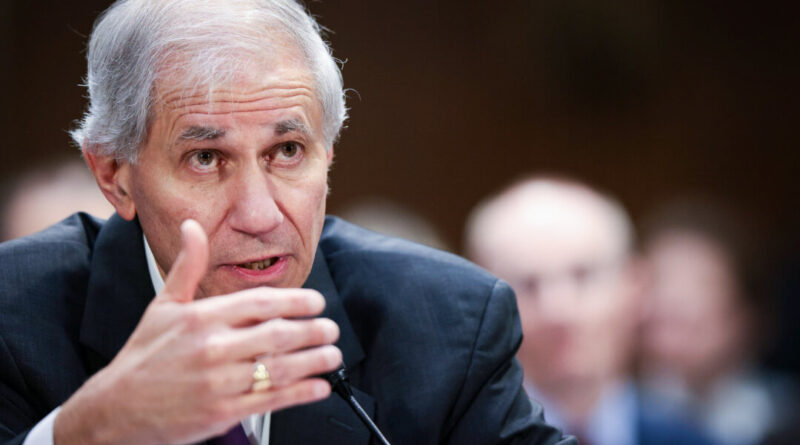Martin Gruenberg, a strong proponent of stringent capital requirements and thorough examination of bank mergers, will be retiring in January.
Federal Deposit Insurance Corporation (FDIC) Chairman Martin Gruenberg has announced his retirement, effective Jan. 19, 2025, one day before President-elect Donald Trump is sworn into office.
“It has been the greatest honor of my career to serve at the FDIC,” Gruenberg wrote in a message to agency staff on Nov. 19, as seen by The Epoch Times. “I have particularly valued the opportunity to work with the dedicated public servants who carry out the agency’s critically important mission.”
Gruenberg, a Democrat, is stepping down after nearly two decades at the FDIC, an agency created during the Great Depression to manage the nation’s deposit insurance program. During his tenure, Gruenberg served as acting FDIC chairman multiple times and later as chairman under former President Barack Obama and then under President Joe Biden.
Gruenberg’s pending retirement comes at a crucial juncture for the FDIC, which also functions as one of several U.S. banking system regulators and the nation’s resolution authority, responsible for winding down troubled banks to prevent financial system disruption. Earlier this year, Gruenberg faced calls to resign from lawmakers after a
report revealed that employee workplace safety was not adequately addressed under his leadership.
In May, Gruenberg
announced his intention to step down once his successor, Commodity Futures Trading Commission official Christy Goldsmith Romero, was confirmed. However, the Senate has yet to advance Romero’s appointment. While Gruenberg’s term extends until 2028, some analysts
anticipate Trump urging his removal.
Upon Gruenberg’s exit, FDIC Vice Chair Travis Hill, a Republican and rumored candidate for the agency’s top position, is expected to assume the chairmanship.
Gruenberg’s departure could signal a change in the FDIC’s regulatory approach.
During the Biden administration, Gruenberg
advocated for stricter oversight of the banking sector, including more stringent capital requirements and increased scrutiny of bank mergers. Some of these policies have faced
criticism from Republicans and industry groups, who argue that they hinder growth, burden financial institutions with excessive bureaucracy, and hinder the emergence of new large banks through consolidation that could provide healthy competition to America’s major banks.
The banking industry is anticipated to benefit from Trump’s deregulatory agenda, potentially resulting in more relaxed capital regulations and merger policies. Following Trump’s election victory, the regional bank
index and the large-cap bank
index experienced significant increases and have since remained elevated.
JPMorgan Chase CEO Jamie Dimon
stated at a recent conference in Lima, Peru, that bankers are excited about the potential for deregulation under a second Trump administration, which he believes could rejuvenate America’s banking sector after years of restrictive regulations.
The JPMorgan chief noted that banks currently lend only $65 for every $100 in deposits, down from $100 previously, which he believes is stifling economic growth. Dimon also highlighted that a deregulatory agenda could benefit industries beyond banking, including mining for crucial technology and defense minerals.




